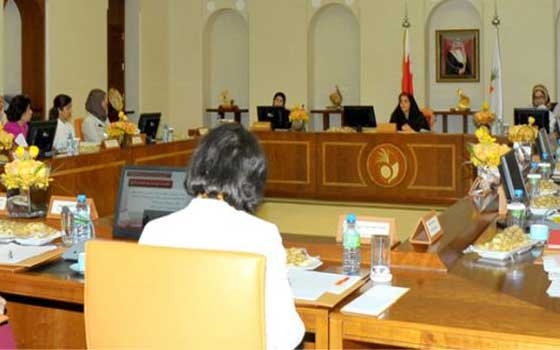Nine women’s rights organizations have joined forces to question the participation of the Supreme Council for Women (SCW) at the Generation Equality Forum. ADHRB, CODEPINK, Women’s March Global, MENA Rights Group, EPAPI Paris, Gender in Geopolitics Institute, Gulf Center for Human Rights, Women in War, and La Minutieuse have demanded in a joint letter that France reconsider the invitation sent to the Supreme Council for Women of Bahrain to attend the Generation Equality Forum in Paris.
On January 30, 2021, the SCW indicated that it would participate in the Generation Equality Forum, a global gathering for gender equality, convened by UN Women and co-chaired by France and Mexico, along with the leadership and partnership of civil society. The event will be held in Paris from June to July 2021. Following the decision of the French Ambassador to invite a delegation from Manama to the event, nine organizations have come together to denounce this invitation.
We believe that the SCW does not abide by the principles of the Forum, and that its presence would only reinforce the misleading message that Bahrain effectively protects human rights.
This is fully addressed in our joint letter, which can be found here: [ENG] / [FR]
The Government of Bahrain perpetuates a culture of human rights violations. The United Nations and the European Union have warned on several occasions that the country tolerates torture and mistreatment, and does not abide by international treaties.
Bahraini authorities, including the Supreme Council for Women, have justified their decision not to fully implement international agreements such as the Convention for the Elimination of Discrimination Against Women (CEDAW) and the International Convention on Civil and Political Rights (ICCPR). By not fulfilling their obligations under international law, the governments invited to participate in the forum––including the Bahraini government––continue to brazenly perpetuate human rights violations, and fail to follow international standards to improve the situation of its citizens, especially women.
Women are particularly targeted by human rights violations. Within the legal system, they are afforded fewer rights compared to their male counterparts, and they face harsher sanctions from the authorities. On many occasions of human rights abuses targeting women, the Supreme Council has stayed silent while the international community, including governments, NGOs and international organizations, have raised concerns. In some cases, the Council has even worsened the situation by complimenting the government’s accomplishments, and reinforcing the idea that women are empowered despite the threats they face from other citizens and the authorities.
ADHRB and other organisations call on the French government to avoid providing a stage for the SCW and the authorities of Bahrain to publicize superficial improvements that effectively whitewash the image of the Kingdom. The international community should take stronger action regarding the human rights violations in Bahrain.





